Bond Small NGO Impact Award – and the winner is. . .
The Small NGO Impact Award acknowledges small organisations that make a big impact in people’s lives or drive positive change in the world.
Congratulations to Teach a Man to Fish on winning this prestigious award.
Below, you can see the shortlist and longlist of nominations. Click on the organisation to see what project they have submitted for this award.
Don’t forget to join in the conversation on social media using the #BondAwards tag.
Winner – Teach a Man to Fish
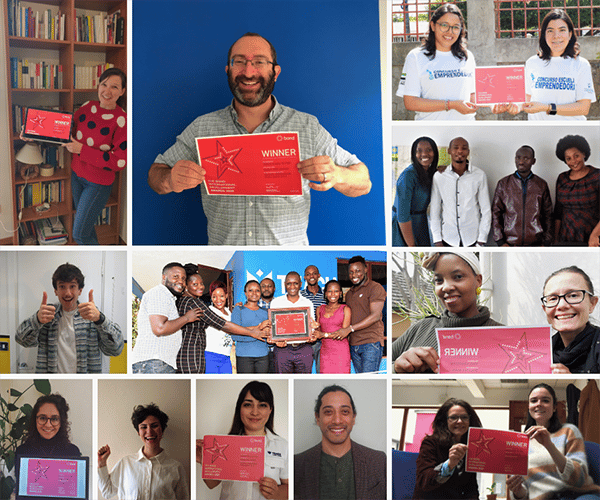
Empowering young people with the skills to shape their own future is what drives our teams across the world to overcome the many challenges they face every day. Winning an award from Bond is a wonderful recognition of their hard work, and validation of the impact we’re achieving through the School Enterprise Challenge. It will fire us up to bring our transformative, hands-on entrepreneurship and life skills programmes to ever more young people in need.
Nik Kafka, Founder and CEO
By planning, creating and running a business at school, students develop the knowledge and skills to do better in school, go on to (self-)employment or further education, while generating much-needed income for schools. Teach a Man to Fish trains teachers to deliver experiential education and embeds sustainable tools for entrepreneurship education in schools.
Project objectives
- Help marginalised youth demonstrate improved business knowledge and life skills.
- Improve the education quality in low-resource schools.
- Contribute to systemic, sustainable change in the countries where the organisation works on the ground.
How have people benefited
In the School Enterprise Challenge 2018, an amazing 69,736 young people in 74 countries improved their entrepreneurship and business knowledge, life skills and confidence. Committed to SDG5, over 50% (28,217) of the young people who took part were female.
The project was designed so that their School Businesses benefit the wider school ecosystem as teachers use experiential learning methodology in their teaching and education is further improved with the additional income. Phumzile Hlophe from the Department of Education in South Africa explains that School Businesses “give [the] opportunity for learners to excel in business. It is a co-curricular activity that keeps learners and teachers together. It is going to bring wealth to future leaders in business. Teach a Man to Fish want to get more schools all districts in the province to participate, creating healthy competition amongst districts.”
What examples are there of impact?
- Through the School Enterprise Challenge 2018, 69,736 young people (54.8% of whom were girls) from 74 countries improved their business and life skills (SDG1 and 8).
- The School Enterprise Challenge 2018 improved education quality, and contributed directly to SDG4 and Target 4.4., in 1081 schools in 74 countries.
- The organisation promoted systemic change by working with 35 organisations and governments at district and national level in 7 countries (SDG4).
What challenges did the project face?
One of Teach a Man to Fish’s greatest strengths is their global reach. Whilst they were delighted that the School Enterprise Challenge 2018 worked with schools in 74 countries, the challenge was communicating with teachers from such a diverse range of countries and with different resources available.
After over a decade sustainably growing their reach, Teach a Man to Fish is constantly improving their methods of communication. Any school with internet access can join the online global programme, which is currently run in English and Spanish so the greatest number of schools and countries may participate. They run a programme on-the-ground and through local partners to reach the lowest resource schools which cannot access the programme online. They employ local field staff who communicate fluently with teachers and schools to train and guide them. They operate through local partners in several other countries for the same reason.
The second challenge faced was proving the long-term impact described in the Theory of Change. Over the past decade, Teach a Man to Fish has consistently improved their monitoring, evaluation and learning and are confident that it successfully shows improved education quality and that students quickly improved their business knowledge and life skills.
Small NGO Impact Award shortlist
Advantage Africa – Preventing Skin Cancer Among People With Albinism in Uganda
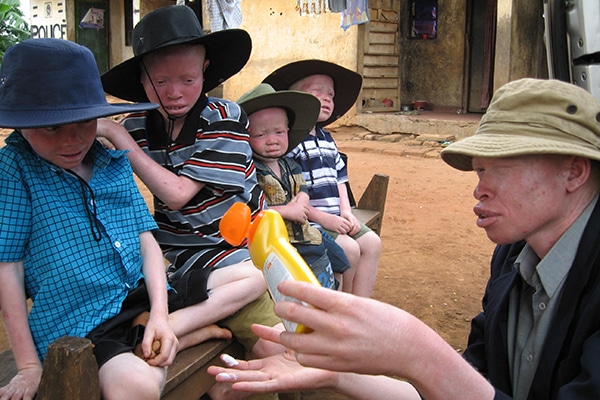
Without sun protection, 98% of people with albinism in Uganda die before they’re 40. This project is saving lives by preventing needless deaths from skin cancer. It helps people with albinism to keep safe with sun protective resources and to lobby for inclusion of their needs within state health policies.
Project objectives
- Prevent needless deaths from skin cancer in Uganda.
- Support up to 1,000 children and adults with albinism in eastern Uganda as well as the Nakivale Refugee Settlement to keep safe from skin cancer.
- Equip the Source of the Nile Union of Persons with Albinism (SNUPA) to promote dermatologist and health worker training and advocate for the inclusion of people with albinism within national government policies to prevent avoidable deaths from skin cancer.
Who has benefited?
Currently up to 1,000 people with albinism, with approximately an equal male/female split.
What examples are there of impact?
- Cases of skin cancer among regular attendees of the skin clinic have reduced dramatically.
- After lobbying and presenting evidence to the Ugandan Government’s Revenue Authority (URA) they have agreed, since 2018, to waive all tax and duty on imports of sunscreen for people with albinism.
- The clinics have enabled the NGO to start sensitising and training local health workers, increase their understanding about albinism and help them to spot signs of skin cancer.
What challenges did the project overcome?
People with albinism have face deep marginalisation and misunderstanding in Uganda and as they began this project Advantage Africa started from a baseline of universal ignorance and lack of support for their health needs. Working with the committed SNUPA team they have raised awareness through annual commemoration of the International Albinism Awareness Day each 13 June, reaching up to 10 million people through national media. They also work closely with district health officers and health workers and lobby government officials at local and national level. People with albinism who have received skin cancer treatment or attended skin clinics, in turn, become role models to help and advise others about keeping safe from skin cancer.
The Busoga sub-region where most of the skin cancer prevention work takes place is geographically wide-spread and people with albinism are scattered across 13 districts. To ensure as many people as possible are aware of and benefit from the skin clinics, Advantage Africa have appointed district representatives, all people with albinism known and respected within their communities, to act as mobilisers and outreach workers. They have also built strong relationships with local media organisations to ensure that the location and dates of skin clinics are well advertised.
High SPF sunscreen, vital to protect people with albinism from skin cancer, is unobtainable or completely unaffordable in Uganda. Since 2017 Advantage Africa have built a relationship with Ultrasun UK, which produces high quality medical grade sunscreen and which now supports them with approximately two tonnes of sunscreen each year and associated shipping costs. They also support the cost of 34 skin clinics per year.
Lorna Young Foundation – Farmers Voice Radio
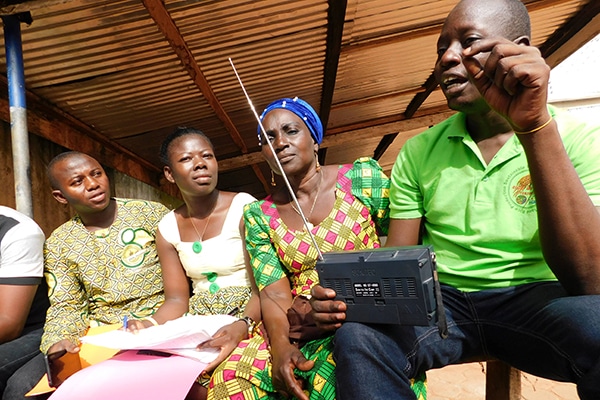
Farmers Voice Radio is transforming the lives of millions of farmers through the power of radio. Farmers Voice Radio is a highly effective and cost-efficient strategy that enables rural farming communities across Africa to access and share the knowledge they need to succeed and strengthen their resilience.
Project objectives
- By 2022, three million smallholder farmers have greater knowledge and confidence to find solutions to the problems they face as a result of listening to Farmers Voice Radio programmes.
- By 2022, at least ten farmer organisations, NGOs and research institutions have increased their reach and become more effective at engaging with and supporting farmers, through the use of Farmers Voice Radio.
- By 2022, at least five commodity supply chains will be more transparent and sustainable, delivering benefits to all actors.
How have people benefited
Since 2016 Farmers Voice Radio has broadcast trusted, vital agricultural information to over 500,000 smallholder farmers in Ghana and Tanzania. This has resulted in improved farming and land management practices, increased yields and quality of produce, economic empowerment of women and strengthened resilience to climate change for over 20,000 smallholder producers – ultimately contributing to more secure livelihoods. These results have been measured through baseline and endline surveys, regular Listener Group meetings and wider listener feedback.
As Farmers Voice Radio is a media intervention, it is extremely difficult to determine and attribute beneficiary numbers conclusively. Lorna Young work with local partners who have relationships with specific groups of farmers, and they measure numbers of beneficiaries and impact amongst these groups. They do however know that the reach and impact of their work extends far beyond these groups to the wider radio listenership, which is often in the millions.
What examples are there of impact?
- Farmers Voice Radio is bringing together scientific climate data and local agricultural expertise to ensure farmers have the information they need to make wise farming decisions. The programmes are broadcast on community radio stations, in local language, to an estimated listenership of 350,000.
- Farmers Voice Radio strengthened the tea supply chain in Tanzania by creating a two-way dialogue with smallholders using radio, SMS and multi-stakeholder groups. A baseline assessment of 238 farmers in 108 villages was used to develop a year-long radio programme, which provided farming advice based around the tea growing calendar. This led to a 1.2MT increase in the volume of green leaf delivered to the buyer by smallholders.
- Since 2016, the Lorna Young Foundation has trained in-country partners in Tanzania, Ghana and Uganda on Farmers Voice Radio. The resulting projects have been highly successful, with proven impact on the livelihoods and resilience of the target smallholder farming communities.
What challenges did the project overcome?
Since 2018, the Lorna Young Foundation has been working on climate change resilience in Ghana and Uganda in collaboration with the University of Reading’s Walker Institute. An early challenge in this project was highlighted in regular monitoring: the local partner and agricultural extension officers were struggling to understand the graphs shared from RAINWATCH, a platform developed by the Walker Institute which provides visual presentations of historical, localised rainfall data across Sub-Saharan. This made it hard for them to present the data to the Listener Groups. LYF and partners overcame this problem by facilitating an additional training session that addressed the specific concerns of the project team and by providing summaries of the data from science interpreters. This has radically improved the presentation of the RAINWATCH data in the Listener Group meetings and the quality of the information in the broadcasts. As a result, farmers across the region are accessing rainfall data analysis and have a space to discuss the implications on their lives.
The Farmers Voice Radio tea project in Tanzania was developed in partnership with an existing local radio station. Unfortunately, the radio station came into difficulties with the government during the project and ceased broadcasting. Due to the success and reach of the Farmers Voice Radio programmes (highlighted in a mid-term review), the local tea association, RSTGA, committed to setting up their own radio station and named it CHAI FM. Two years on, CHAI FM is still broadcasting and addressing the issues of tea farmers across the Rungwe region, using the Farmers Voice Radio methodology.
During the development of the Farmers Voice Radio project in Ghana, formative research highlighted that text messaging is not a common mode of communication in the region. Most smallholder farmers have access to a mobile telephone, but they are highly unlikely to communicate via SMS due to illiteracy and cultural norms. In response, Lorna Young are designing a telephonic system in partnership with Farm Radio International, which will enable farmers to call a toll-free number and voice their comments and questions.
Small NGO Impact Award longlist
Ace Africa
Improving access to quality HIV health services, for marginalised Maasai communities in Arusha District, Northern Tanzania
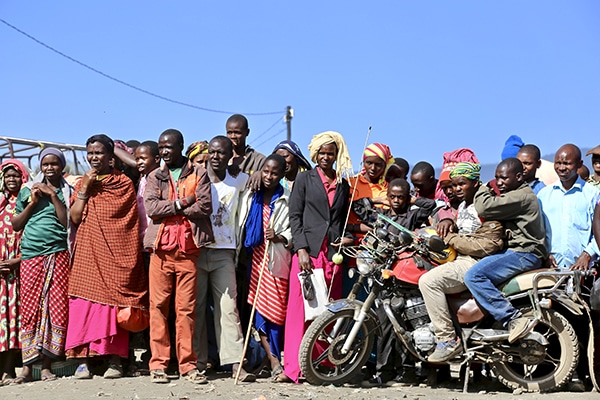
In Arusha, marginalised Maasai communities are vulnerable to HIV but face key barriers in accessing health services. Through innovative community drama events and capacity building, Ace Africa has challenged widespread stigma and improved access to quality HIV prevention, testing and treatment services for 22,172 people.
Avert
Communicating for change using social media
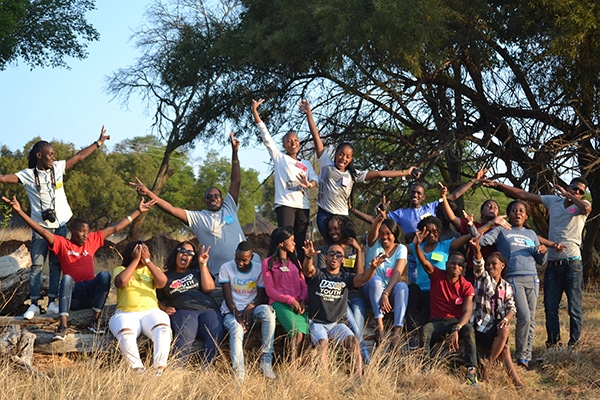
HIV isn’t over, especially for young people in Southern Africa, who still don’t have the knowledge they need. Stigma, myths and misinformation mean that people aren’t able to make informed choices. Avert developed a social media approach to help millions of people take control of their sexual health.
Children on the Edge
Scaling child protection teams in Ugandan slum communities
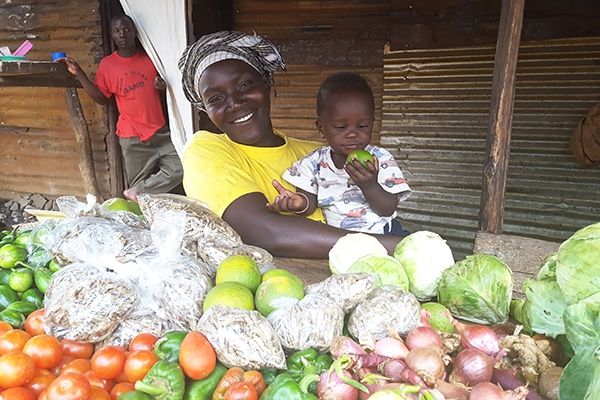
A pilot volunteer Child Protection Team in Masese II slum, Jinja, Uganda, has been replicated in four impoverished areas that face significant child protection challenges. Teams made striking changes: strengthening families and communities, creating access to education, improving sanitation, increasing household income, reducing crime and creating safer environments for children.
Excellent Development
Building resilient, food and water secure communities in Kenya

The project will support 10 communities/self-help groups in southeast Kenya to build sand dams (a cost-effective rainwater harvesting technology) and adopt climate-smart agriculture so that they can access clean water and food for life, as well as build climate resilience.
Five Talents
Transforming lives through economic empowerment – Karamoja
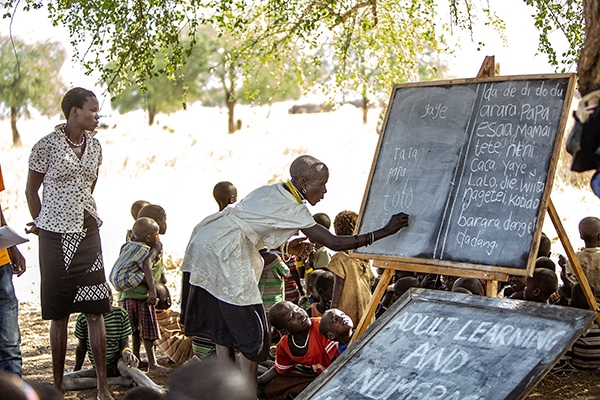
Five Talents is providing rural, marginalised communities in Karamoja access to financial services, literacy and numeracy training and business skills training. Their projects offer members a hand up, empowering them to lift themselves out of poverty with dignity, even in the face of adversity.
Medical Aid Films
Developing film based learning to support and scale life-saving maternal and child health services in rural Nepal
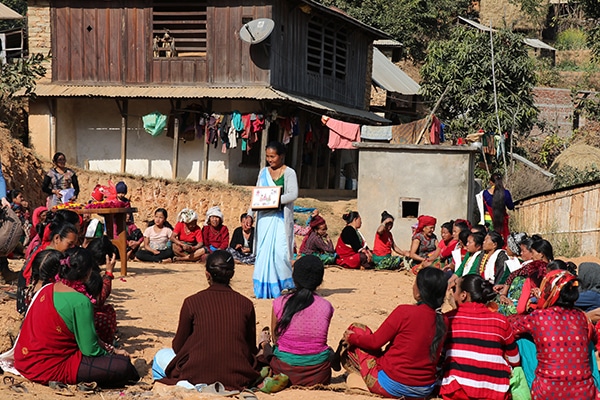
Medical Aid Films developed a suite of community education and training films, to strengthen and scale One Heart Worldwide’s ground-breaking health programme model across remote Nepal. The project re-purposed existing film content and cost effectively adapted it to meet the needs of a Nepali and wider south Asian audience.
midwives@ethiopia
Strengthening maternal health care in villages in rural Ethiopia

Partnering with Ethiopian midwives to improve access to skilled care for pregnant women care.
Orchid Project
Knowledge Sharing Programme

Orchid Project believes that accelerating the total abandonment of female genital cutting (FGC) can be supported through organisations and activists being more closely connected to share good practice and collaborate with one another. Their Knowledge Sharing Programme uses mixed approaches to support increased connection and collaboration within the FGC sector.
Primary Care International
Improving Non-Communicable Disease care for refugee populations
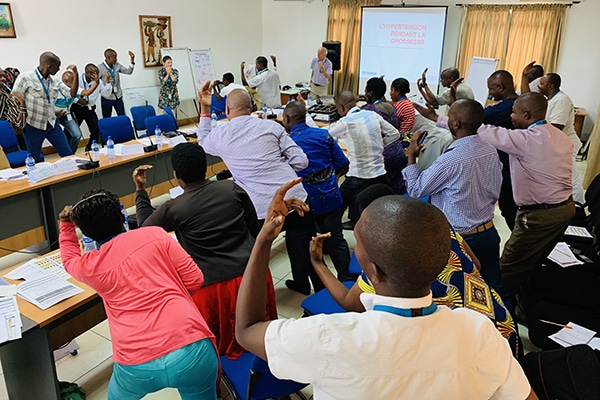
Non-Communicable Diseases are the next global epidemic according to WHO, yet healthcare workers and systems in resource-poor settings are not equipped to respond, particularly in humanitarian settings. PCI’s partnership with UNHCR is saving lives of refugees: improving access to and quality of care for chronic conditions like diabetes and heart-disease.
Toybox
Street to School: education for street and working children in Delhi
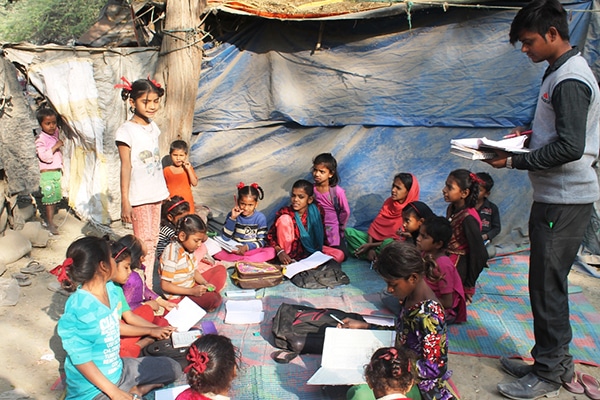
Working alongside children, families, communities, schools and local government, Toybox’s Street to School project aimed to break the cycle of poverty that children working on the streets in Delhi experience by enrolling street-connected children into school; empowering them to access education and the invaluable opportunities that come with it.

